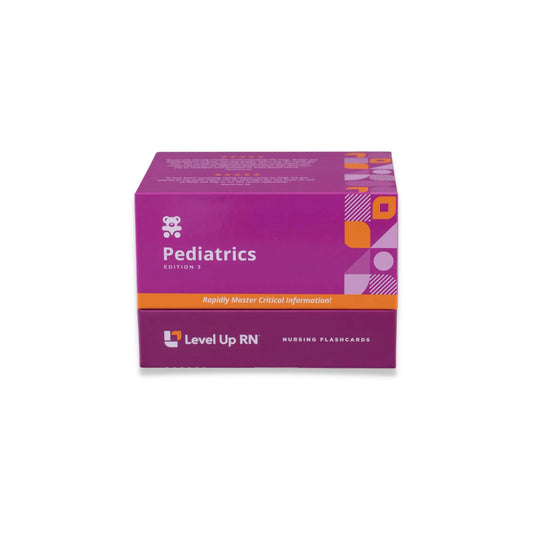- 0:00 What to Expect
- 0:22 ADHD
- 0:32 Signs and Symptoms
- 0:44 Treatment
- 1:00 Parental Teaching
- 1:49 Autism
- 2:01 Risk Factors
- 2:11 Signs and Symptoms
- 2:36 Nursing Care
- 2:46 Family Teaching
- 2:57 Quiz Time!
Peds, part 39: Nervous Disorders - ADHD and Autism
Full Transcript: Peds, part 39: Nervous Disorders - ADHD and Autism
Full Transcript: Peds, part 39: Nervous Disorders - ADHD and Autism
Hi. I'm Cathy with Level Up RN. In this video, we are going to talk about ADHD as well as autism. If you have our Level Up RN pediatric nursing flashcards, pull those out so you can follow along with me. And at the end of the video, I'm going to give you guys a little quiz to test your knowledge of some of the key points I'll be covering in this video, so definitely stay tuned for that.
First up we have ADHD, which is attention deficit hyperactivity disorder. And this is a psychiatric condition characterized by inattentiveness, hyperactivity, and impulsivity, and it can result in impaired academic functioning and/or impaired social functioning. So treatment of ADHD typically requires the use of central nervous system stimulants, such as amphetamine mixtures and methylphenidate. These medications carry key side effects of insomnia and decreased appetite. So due to the side effect of insomnia, we want to advise our parent to provide the ADHD medication in the morning so it doesn't cause as much insomnia. And because of the side effect of decreased appetite, the parents should administer the medication with meals or after meals. We wouldn't want to give it before a meal because then it would decrease the child's appetite, and they may not eat their food as well. We also want to monitor the child's growth and weight throughout therapy to make sure they're eating enough and getting enough nutrients in. And then we should advise our parents to maintain a structured environment with consistent rules, and decrease distractions whenever possible for their child.
Next up we have autism, which is a neurological disorder that causes behavioral and psychological problems. The cause of autism is not known but possibly related to genetic and environmental factors. Risk factors include a family history, and males are more likely to have autism than females. Signs and symptoms include impaired social interactions, repetitive behavior, lack of eye contact, as well as speech delays, cognitive impairment, and trouble adapting to routine changes. There is no cure for autism, and really, focus is on early intervention services to improve the functioning of the child. So in terms of nursing care, we are going to want to provide referrals for speech, occupational, and behavioral therapy. And then in terms of family teaching, we want to advise the families to provide a structured environment for the child, to decrease stimuli, and give plenty of notice before changing routines.
All right, it's time for a quiz. I've got three questions for you. First question. What medication class is used to treat ADHD? The answer is CNS stimulants, such as amphetamine mixtures or methylphenidate. Question number two. Lack of eye contact, repetitive behavior, and impaired social functioning are indicative of what disorder? The answer is autism. Question number three. What do we need to monitor in a child taking ADHD medications? The answer is, we need to monitor their weight and their growth, as these medications decrease the child's appetite. All right, that's it for our nervous system disorders in the pediatric population. Thank you so much for watching, and good luck with studying.


